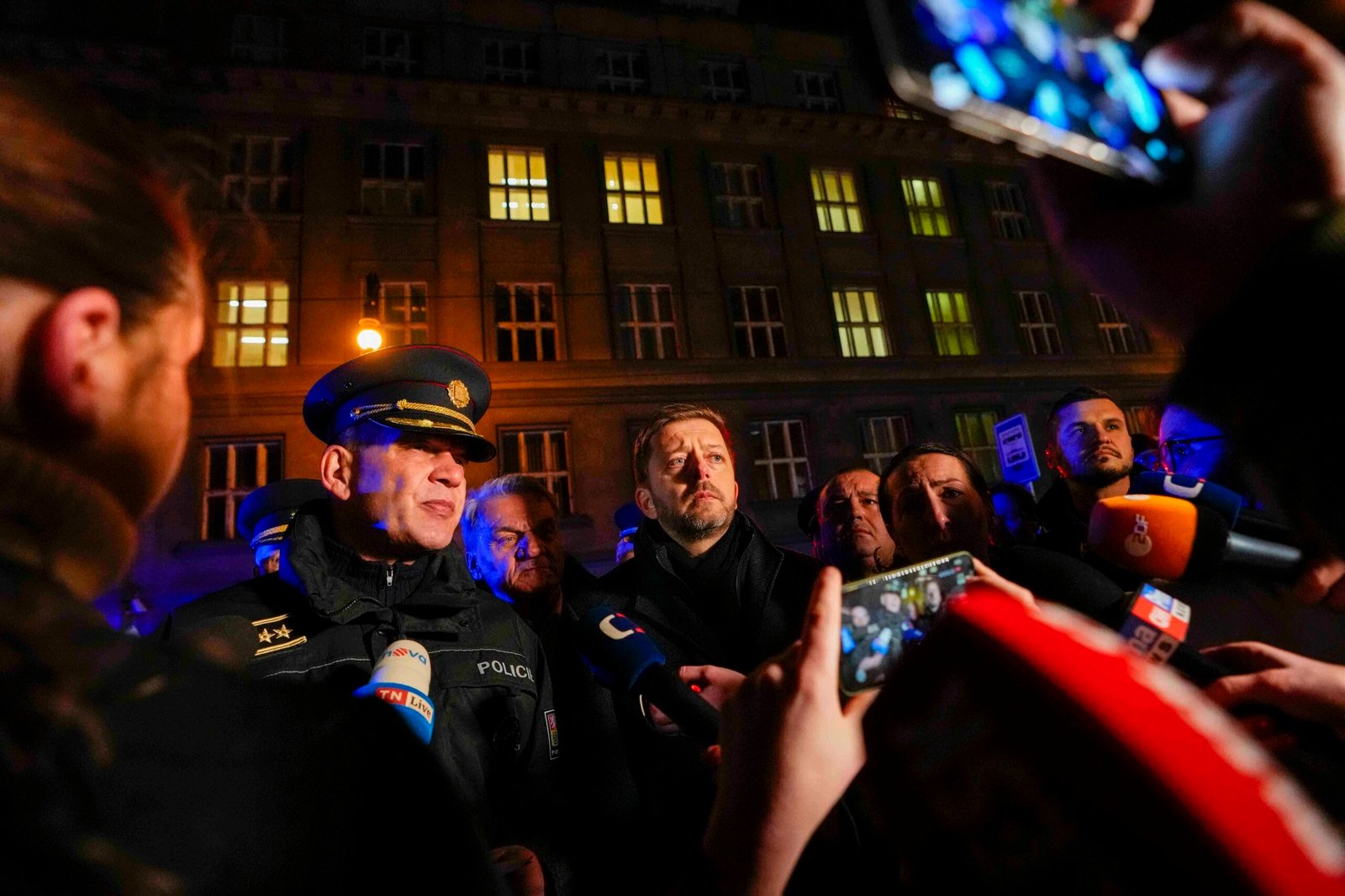The Czech Republic is grappling with an unprecedented tragedy, as the nation faces the aftermath of the deadliest mass shooting in its history. A gunman opened fire into a university building in the capital city of Prague, leaving 14 people dead and over two dozen others injured.
The enormity of the crime has prompted a strong reaction from Czech officials, with Interior Minister Vit Rakusan expressing the shock and horror felt across the nation. An emergency government meeting was swiftly convened on Thursday evening in response to the devastating massacre.
Unlike the United States, where mass shootings have unfortunately become more commonplace, such incidents are rare in Europe. The impact of this tragic event in Prague is expected to reverberate through the Czech Republic for years, potentially influencing the nation’s stance on gun control.
International experts on gun violence are closely monitoring the situation, recognizing the unique context of Europe and its historical stance on firearm regulations. Jaclyn Schildkraut, the executive director of the Rockefeller Institute of Government’s Regional Gun Violence Research Consortium, emphasizes the immediate and enduring consequences of the shooting.
“This is a horrible crime, something the Czech Republic has never experienced,” says Minister Rakusan, reflecting the collective shock and grief in the nation. The unprecedented nature of the event is underscored by its occurrence in a country where mass shootings are not part of the regular narrative.
Schildkraut, a prominent figure in gun violence research, highlights the profound and lasting impact on individuals and families affected by the tragedy. The timing, occurring around the holidays, adds another layer of heartbreak. “There are a lot of people today who were impacted by this tragedy and who will be feeling reverberations of this for years to come,” she notes.
The Rockefeller Institute’s consortium, dedicated to providing policy recommendations to lawmakers in the fight against gun violence, recognizes the unique challenges and implications of this shooting. The aftermath extends beyond the immediate loss of lives, with families facing an empty seat at holiday tables and numerous individuals spending the festive season in hospitals recovering from gunshot wounds.
As the Czech Republic grapples with the aftermath of this unprecedented event, questions about the nation’s approach to gun control may come to the forefront. While Europe has generally maintained stricter gun regulations than the United States, the shock of such an incident could prompt a reevaluation of existing policies.
The tragic events in Prague serve as a stark reminder that no nation is immune to the devastating impact of mass shootings. The aftermath will likely prompt discussions about enhancing preventive measures, mental health support, and gun control regulations to safeguard communities from such unthinkable acts of violence. The effects of this event will undoubtedly shape the Czech Republic’s collective consciousness and approach to ensuring the safety and well-being of its citizens.
